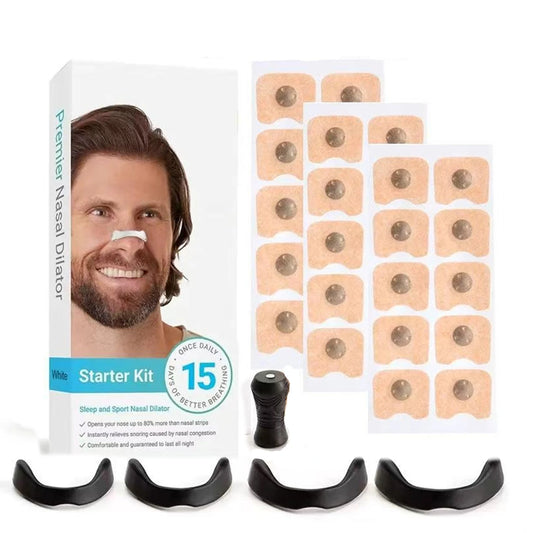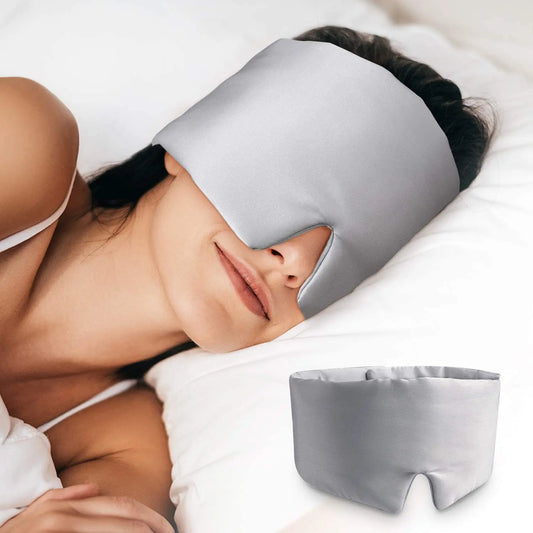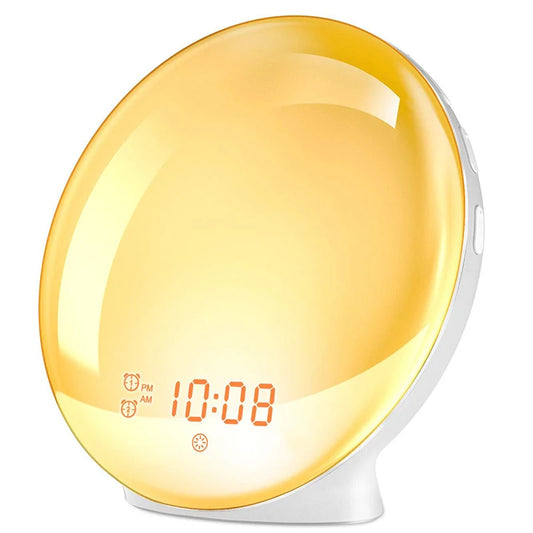
The Secret to Restful Nights: Creating the Perfect Sleep Environment
Share
Imagine stepping into your bedroom and instantly feeling calmer. The air feels soft and breathable, the scent around you melts away stress, and your body begins to relax as you drift off to sleep.
Even if you follow a strict bedtime, your environment plays a huge role in how quickly you fall asleep and how deeply you rest. Two major factors—air quality and sensory cues—can make the difference between tossing and turning or sinking into restorative slumber.
Dry air can irritate nasal passages, throat, and skin, leading to subtle disruptions throughout the night. Meanwhile, allergens, dust, or pollutants in the air can trigger congestion, sneezing, or mild breathing issues, which also disturb sleep. Your senses—especially smell—send signals to your brain that either promote relaxation or keep you alert.
By addressing humidity, purity, and scent, you create an environment that actively supports deep, uninterrupted rest. Lets talk about it.
The Science Behind Lavender and Relaxation
The scent of lavender has been shown in studies to reduce heart rate and blood pressure, signaling to your body that it’s time to relax. Spritzing a lavender spray on your pillow or bedding creates a calming atmosphere that encourages your mind to let go of the day’s stress.
Inhaling lavender before bed can:
- Lower heart rate and blood pressure
- Reduce anxiety and stress levels
- Encourage the transition from wakefulness to sleep
By using lavender as part of your bedtime routine, you’re sending a clear message to your nervous system: it’s time to relax. Over time, the scent becomes a mental cue, helping your body recognize the start of rest mode.
How a Humidifier Enhances Sleep
If you’ve ever woken up with a dry throat, cracked lips, or congestion, chances are the air in your bedroom is too dry. A humidifier works by adding gentle moisture back into the air, which can have a surprisingly big impact on your sleep quality. The ideal bedroom humidity is around 40–60%. Forced heating in winter, desert environments, or even air-conditioned spaces can strip moisture from the air, causing discomfort that can lead to disrupted rest.
A properly humidified room:
- Prevents dry nasal passages and throat irritation
- Keeps skin hydrated overnight
- Reduces micro-awakenings caused by dryness
- Makes the air feel softer and more comfortable
A humidifier quietly balances your environment, ensuring that you remain comfortable and undisturbed all night.
How an Air Purifier Impacts Sleep Quality
Clean air is crucial for deep, restorative sleep. Air purifiers remove dust, pollen, pet dander, and airborne pollutants that can irritate the respiratory system. Even mild congestion or exposure to allergens can reduce sleep quality without you realizing it. By ensuring the air you breathe at night is pure and refreshing, an air purifier not only helps you fall asleep more easily but also supports long-term respiratory health.
Benefits of using an air purifier:
- Reduces nighttime coughing, sneezing, or congestion
- Minimizes exposure to allergens and irritants that disrupt sleep
- Creates a fresher, cleaner atmosphere that feels more comfortable and soothing
Together with humidity and calming scents, an air purifier ensures that every breath you take during the night supports restful sleep rather than interrupting it.
In Summary
Small adjustments such as these can have a big impact. By combining different methods, you’re giving your body multiple signals to relax fully. Over time, this ritual becomes a mental cue, training your mind and body to recognize when it’s time to rest. These techniques can transform your bedroom into a restorative haven, to support longer deep sleep cycles, and a refreshed morning wake-up.
👉 Shop Nite Zen’s Collection to create your perfect nighttime ritual and experience the difference tonight.





